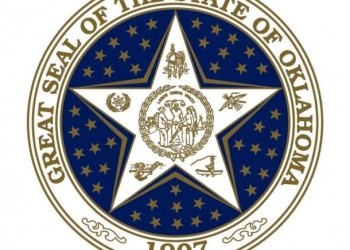Federal officials asked seemingly mundane questions during a Tuesday meeting in Colorado with state officials, at least some of whom were unaware that the discussion was part of a shadowy review of federal marijuana policy.
The meeting providesthe best glimpse yet into the issues authorities are considering as they prepare to make recommendations next week on what to do about state-legal recreational marijuana, with options ranging from a crackdown to keeping the status quo.
The guest list on Tuesday included Justice Department attorney Michael Murray, who is leading the department’s marijuana policy review, and a State Department official with expertise in treaty obligations, according to Mark Bolton, deputy legal counsel to Colorado Gov. John Hickenlooper, a Democrat.
John Zadrozny, a domestic policy adviser at the White House, was in the room, as were two representatives of the White House Office of National Drug Control Policy, says Bolton, who also attended.
A person with knowledge of the meeting’s purpose says the gathering and another meeting Wednesday with officials from the city of Colorado Springs are directly related to the ongoing federal pot policy review. The source asked not to be identified.
Bolton says he was unaware that the meeting – which featured about 20 state agency representatives — was directly related to the policy review.
With the Justice Department disclosing few details about the subcommittee Murray is leading, Bolton’s recollection of the meeting offers the most information yet about what issues are being considered.
The only question that Bolton recalls Murray asking dealt with whether 2014 guidancefrom the Treasury Department’s Financial Crimes Enforcement Network (FinCen) remains “up to date,” he says.
That guidance outlined how banks can work with pot businesses, but many financial institutions remain reluctant to take on the compliance burden or perceived risk involved in handling cash for cannabis firms operating in violation of federal law.
“I don’t remember him asking other questions, but it may be they weren’t questions that resonated with me,” Bolton says.
The State Department official asked if there had been significant problems with diversion of Colorado marijuana to other countries, Bolton says. A representative of the Colorado Department of Public Safety said that is not a significant problem.
United Nations officials have saidrecreational marijuana legalization violates international anti-drug treaties that the U.S. has ratified. The Drug Enforcement Administration said in 2014, without offering evidence, that drug cartels were smuggling U.S. pot into Mexico.
The ONDCP representatives at the meeting asked about educational efforts and about continued black- and gray-market sales, Bolton says. He can’t recall Zadrozny asking any questions.
Zadrozny did not immediately respond to an email seeking comment. A State Department spokesman was not immediately able to offer comment and a spokesman for ONDCP did not immediately return a phone call.
Bolton says state officials shared how Colorado uses marijuana tax revenue – estimated to exceed $500 million since recreational sales began in 2014 – to educate the public about the risks of the drug and about responsible use, and that officials pointed out teen use has not increased. He says participants did not directly address the possible consequences of repealing the Justice Department’s 2013 Cole Memo, which allowed recreational pot stores to open.
It’s unclear if federal officials are touring other states as part of their policy review.
Hickenlooper and Coffman both opposed marijuana legalization when it appeared on 2012 ballots and after it passed warned fellow states not to follow. But over the years both have become gradual converts and have urged Sessions not to implement a crackdown. Coffman’s office defeated a lawsuit brought by neighboring states and told U.S. News earlier this year efforts to regulate the drug had gone “better than I thought they would.”
After meeting with state officials, a group of feds met Wednesday with legalization foes in Colorado Springs. No supporters of regulating recreational sales attended, KKTV reportedafter staking out the meeting and later interviewing Mayor John Suthers, a former U.S. attorney and state attorney general who opposes marijuana legalization.
“A lot of [the meeting dealt with] sensitive case investigations. That’s another reason why it couldn’t be public,” Suthers told the station. “Probably most of the discussion centered around the huge black market that exists for marijuana in Colorado.”
Suthers said the city’s police department created the guest list, which included a local doctor and a school district director of discipline. The mayor and the police chief were unable to provide immediate comment.
Lt. Howard Black, a spokesman for the police department, says he’s not sure of the affiliations of federal officials who attended.
“There was no sign-up sheet or anything,” he says.
KKTV reported a member of Vice President Mike Pence’s staff and at least one member of the DEA also attended the Colorado Springs meeting. Pence’s office did not immediately respond to a request for comment, and the national DEA headquarters referred questions to the local office, which did not immediately respond.
Although the Justice Department could launch a devastating legal assault on state-regulated recreational marijuana, medical marijuana currently is protected from federal prosecutors and anti-drug agents by a budget restriction passed in Congress. And in Colorado, state legislators approved legislation earlier this year allowing businesses to reclassify recreational pot as medical marijuana if the need arises.
credit:420intel.com












